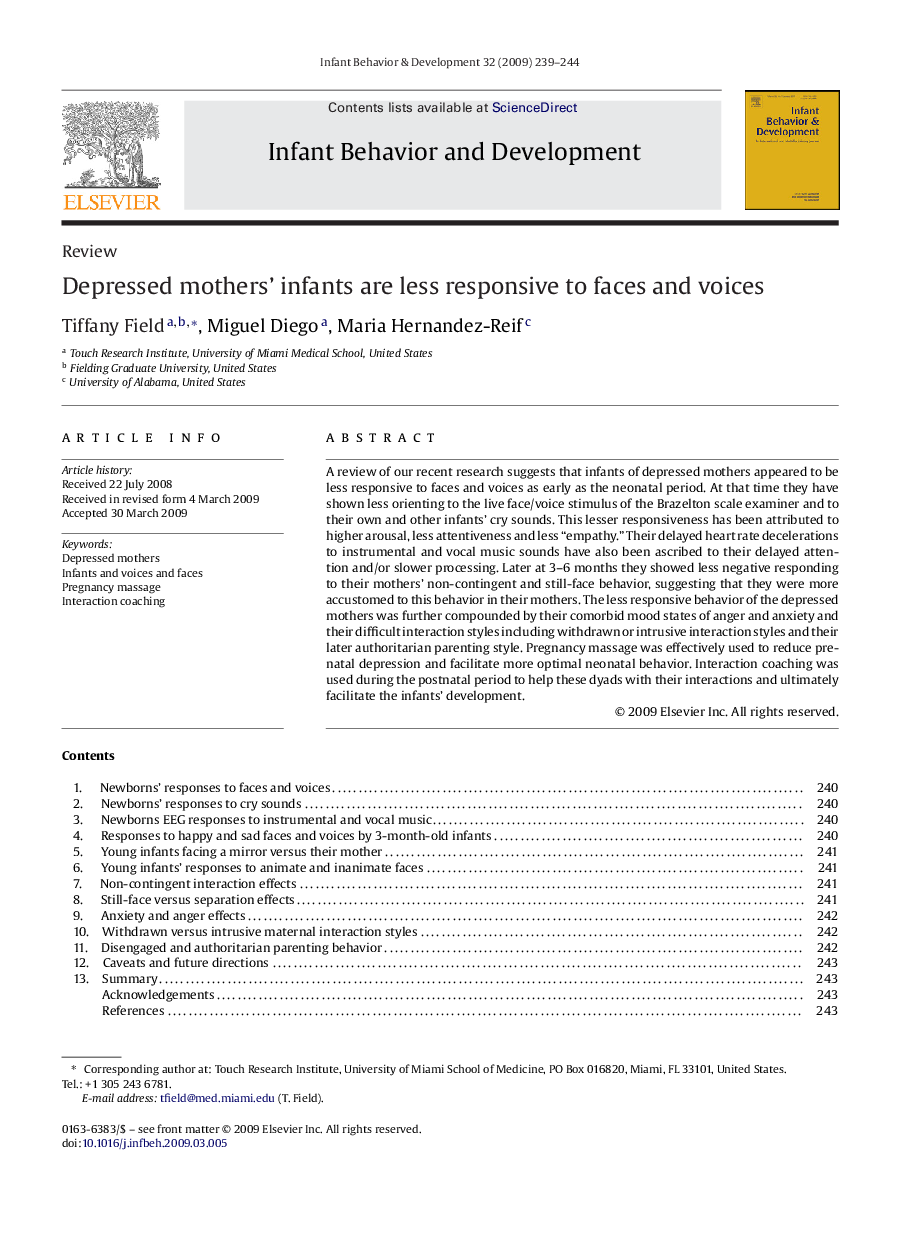| کد مقاله | کد نشریه | سال انتشار | مقاله انگلیسی | نسخه تمام متن |
|---|---|---|---|---|
| 917492 | 919273 | 2009 | 6 صفحه PDF | دانلود رایگان |

A review of our recent research suggests that infants of depressed mothers appeared to be less responsive to faces and voices as early as the neonatal period. At that time they have shown less orienting to the live face/voice stimulus of the Brazelton scale examiner and to their own and other infants’ cry sounds. This lesser responsiveness has been attributed to higher arousal, less attentiveness and less “empathy.” Their delayed heart rate decelerations to instrumental and vocal music sounds have also been ascribed to their delayed attention and/or slower processing. Later at 3–6 months they showed less negative responding to their mothers’ non-contingent and still-face behavior, suggesting that they were more accustomed to this behavior in their mothers. The less responsive behavior of the depressed mothers was further compounded by their comorbid mood states of anger and anxiety and their difficult interaction styles including withdrawn or intrusive interaction styles and their later authoritarian parenting style. Pregnancy massage was effectively used to reduce prenatal depression and facilitate more optimal neonatal behavior. Interaction coaching was used during the postnatal period to help these dyads with their interactions and ultimately facilitate the infants’ development.
Journal: Infant Behavior and Development - Volume 32, Issue 3, June 2009, Pages 239–244